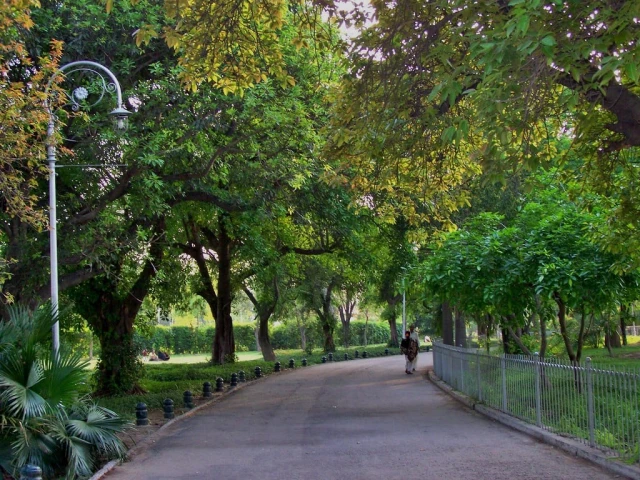Trees declared key to air purification
Environmentalists stress urban forestry to curb smog

Environmental experts believe that the most effective remedy for hazardous air pollution and winter smog in Lahore lies in planting trees that act as natural filters for the atmosphere.
According to Jaleel Ahmed, Director of Bagh-e-Jinnah, broad-leaved trees such as banyan, jamun, pipal, neem, shisham, amaltas, and arita effectively trap dust particles and absorb carbon emissions, thereby purifying the air and maintaining oxygen balance. "Trees not only produce oxygen but also prevent soil and carbon particles from spreading in the air," he noted.
Amid rapid urban development and shrinking green cover, urban forestry and rooftop gardening are gaining momentum in the city. The Parks and Horticulture Authority (PHA) reports that more than 500 buildings in the city now have rooftop gardens featuring fruit-bearing plants, vegetables, and grass. These gardens not only absorb harmful gases but also help reduce ambient temperature by an average of two to five degrees Celsius.
PHA Director General Raja Mansoor Ahmed said a "Lungs of Lahore" initiative is being implemented as a model project to combat urban air pollution.
Under the project, more than 4.8 million trees will be planted across a 112-kilometre stretch covering 1,711 acres, forming a ring of urban forest around the city. "This green belt will directly benefit over 20 million residents," he added.
Environmental expert Naseemur Rehman emphasised that while controlling industrial and vehicular emissions remains essential, promoting urban forestry and rooftop gardening within city limits is equally crucial. He said these measures not only lower urban temperatures but also improve rainwater management, providing a sustainable solution to urban environmental stress.
According to forestry expert Badar Munir, trees remain "the most effective biological weapon" against air pollution worldwide. A departmental study identifies the banyan as the most efficient tree for air purification, followed by arjun and jamun, which possess strong pollutant absorption capacities.
However, Munir stressed that the effectiveness of trees depends on proper maintenance. "Dry or diseased trees lose their capacity to absorb pollutants and may even release carbon dioxide," he said, urging that native tree species be prioritised in plantation campaigns and that awareness regarding tree care be increased.
Meanwhile, the Punjab Environment Protection Department (EPD) demolished an illegal steel mill operating in Lahore without the required permits. The mill was found involved in unauthorised carbon burning and improper disposal of industrial waste. According to Lahore Environment Deputy Director Ali Ijaz, 2,000 kilograms of carbon material and illegal weapons were seized during the action. The weapons were handed over to the police.
As per a statement, police foiled an attempt to attack the EPD team during the demolition. The operation was carried out with support from the Punjab Rangers.
An EPD spokesperson stated that the department is enforcing a zero-tolerance policy against industrial units causing pollution, under directives from the director general of the Environmental Protection Agency (EPA).




















COMMENTS
Comments are moderated and generally will be posted if they are on-topic and not abusive.
For more information, please see our Comments FAQ